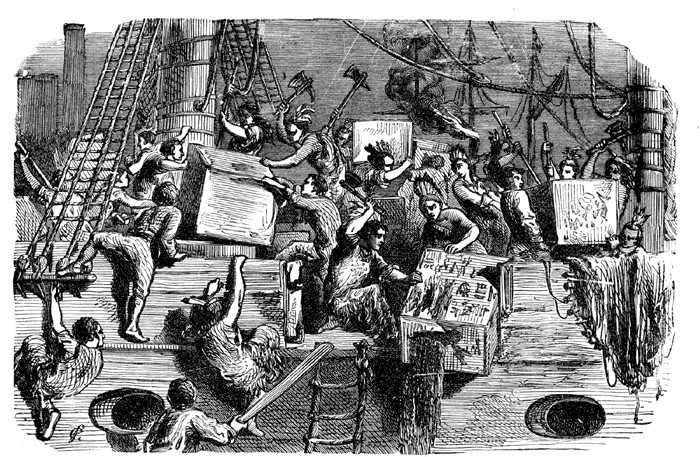
In the past, it was the Boston Tea Party. This was a way for early American citizens to raise a ruckus against the oppression of the British Big Government. Ironically, those same Americans went on to create their own government, checked by a Constitution that would supposedly prevent the same thing from ever happening again.
And yet, it did.
Today’s American government is just as bad as the British government that preceded it, and that gave rise to the American government in the first place. In fact, today’s government in America is arguably even worse than the British oppressors of yesterday. The people let this happen, slowly and over time. The single biggest reason people let this happen is the entitlement mentality. This mentality can best be summarized by two emotions: One, “I must take care of others.” Two, “Others must take care of me.” Neither of these emotions, or the ideas underlying them, are fitting for a free people. Whenever these emotions, or the ideas underlying them, are dominant, you cannot sustain a free country, nor a reasonable society filled with self-responsible and forward-thinking people. The early Americans had had it with Big Government. But they were also the type of people who so wanted and valued their freedom that they were willing to live in a harsh wilderness, such as early America, rather than stay with the known and familiar comforts of the European homeland. Think of the type of people who so wanted their freedom that they were willing to do this, and you’ll better understand why the original Tea Party happened, why the American Revolution enjoyed popular support, and why a Constitution based on limited government was a popular idea at that time.
“I must take care of others” is the emotion of the guilt-ridden. In America today, these emotions find expression in the actions of business people — such as Bill Gates, who fervently campaigns for higher taxes — and Hollywood celebrities, nearly every one of whom is a liberal Democratic socialist. These are the people who aren’t merely satisfied giving all of their wealth away; and in fact, most of them keep the great bulk of their wealth. What they itch and burn to see develop is a society where everyone is mandated to take care of everyone else. They think it would be a much more peaceful and loving place than one where each takes care of oneself, or anyone else of one’s voluntary choosing. They could freely pursue such a course themselves, given the comfort in which they live, but they do no such thing. Yet they demand that it be legislated into existence for everyone else. Mind you, these rich people are not merely proclaiming, “I have enough. So I want to quietly give it away.” That’s surely the prerogative of any wealthy person, and there are wealthy people like this. These conspicuously compassionate socialist liberals, on the other hand, want such a mentality fostered and required by the government. They want compassion mandated by the likes of Obama and Nancy Pelosi, the Chairpersons of Love who are supposed to be the political ties that bind us all together, whether we like it or not.
The other emotion, “Others must take care of me,” is no less hypocritical in its own way. People whose psyches are dominated by this emotion are happy to have the philosophy of liberal altruistic socialism imposed on others. What about themselves? “Well, it can’t apply to me,” they feel. “I’m put upon enough as it is. I deserve my share! It’s my turn!” These are the people who feel happily entitled to everything “the government” — that is to say, other people — are mandated to provide for them. It’s an invisible exchange. The trade is between “those who have had it easier than I have,” and “those such as myself who have suffered enough.” A lot of this is emotional and unspoken — but it’s present in the mindsets of millions of people. This psychological mindset, once it takes hold of our political institutions (as it did, starting in the Great Depression of the 1930s, if not sooner) gobbles up all that is good about the society and turns human beings into a bunch of moral cannibals.
Both of these mentalities are a far cry from the psychology and ideology underlying the first Tea Party and the original American Revolution. Because America was just getting started, and because the world had not progressed to a point where you could have the level of wealthy people you see today in Hollywood and Bill Gates, there were no compulsively guilt-ridden socialists to wield their influence. And because America was more of a potential — a vast wilderness filled with promise and opportunity, rather than a place to expropriate and exploit, as it is today — there was no basis for people feeling that others must take care of them.
I sometimes wonder if the America of 2010 is too far gone to even deserve salvation from what’s destroying it within. It really boils down to who’s stronger: The will of the people who believe in the right things, and who are self-responsible, or the nasty parasitism of those who feel entitled. There’s no question the good guys can and should win. But will they? Do they have the courage and the strength required to rebuild a great country of great character? Politics will not determine this. Politics will be the consequence of how this question is answered.
